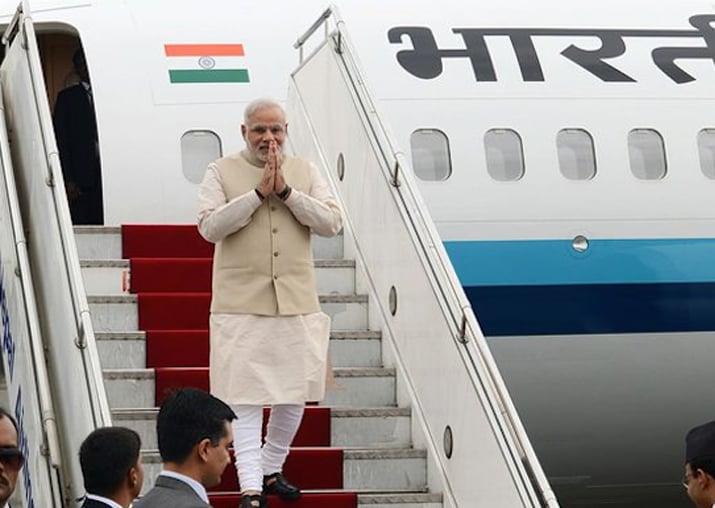India News
PM Modi says looking forward to a healthy exchange of views as he embarks to attend Japan G7 Summit
The Prime Minister informed that he will also be holding bilateral talks with some of the leaders taking part in the Summit.

India News
PM Modi accuses Congress of anti-Sikh bias over Rahul Gandhi’s ‘traitor’ remark
Prime Minister Narendra Modi accused Rahul Gandhi of targeting BJP MP Ravneet Singh Bittu with a ‘gaddar’ remark because of his Sikh identity while speaking in the Rajya Sabha.
India News
Manipur Assembly to meet at 4 pm today, floor test likely under new chief minister
The Manipur Legislative Assembly will convene at 4 pm today, with a floor test likely as the new chief minister seeks to prove his majority in the House.
India News
PM Modi skips Lok Sabha reply as protests force repeated adjournments
PM Modi did not deliver his Lok Sabha reply today after sustained Opposition protests led to repeated adjournments over a dispute involving Rahul Gandhi’s proposed speech.
-

 Latest world news18 hours ago
Latest world news18 hours agoPakistan faces domestic backlash after India secures lower tariffs in US trade deal
-

 Latest world news19 hours ago
Latest world news19 hours agoNew Delhi free to buy oil from any source, Russia says amid US deal claims
-

 Cricket news19 hours ago
Cricket news19 hours agoPakistan PM Shehbaz Sharif confirms boycott of India match at T20 World Cup
-

 India News15 hours ago
India News15 hours agoManipur Assembly to meet at 4 pm today, floor test likely under new chief minister
-

 India News10 hours ago
India News10 hours agoPM Modi accuses Congress of anti-Sikh bias over Rahul Gandhi’s ‘traitor’ remark












